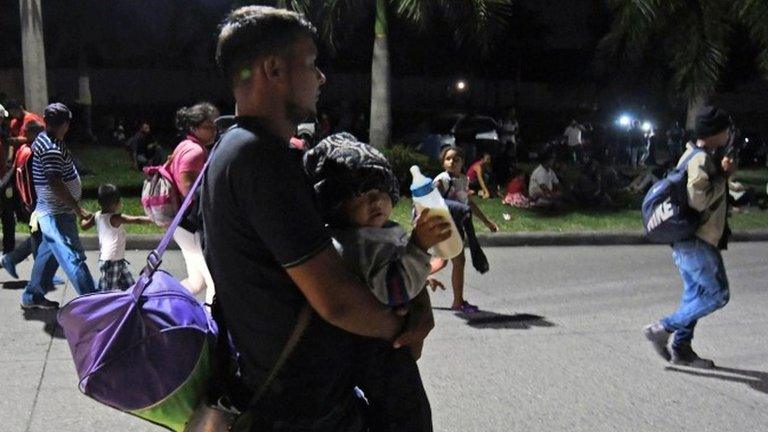US-Mexico border: Thousands of migrants expelled under coronavirus powers
- Published
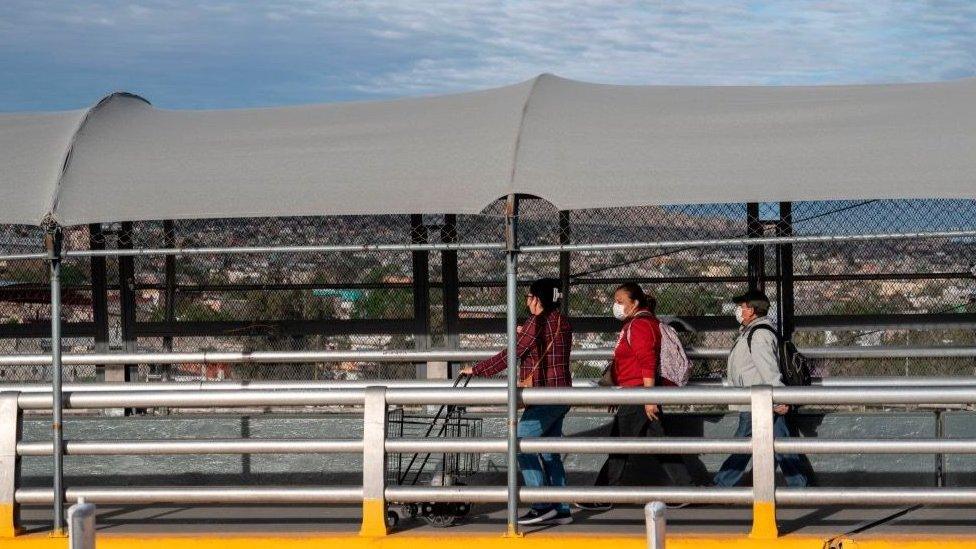
The US has closed its border with Mexico to all but essential traffic
The US has expelled more than 6,300 undocumented migrants on its Mexico border using emergency powers to curb coronavirus spread, officials say.
The 21 March public health measure lets officials override immigration laws, expediting removal processes.
Critics say the order is being used as an extension of strict immigration policies.
Meanwhile, the number of illegal border crossings has fallen amid travel restrictions across the region.
The emergency public health order issued by the US Centers for Disease Control and Prevention (CDC) bans the entry of foreigners considered to pose a "serious danger" to the spread of communicable disease.
The measure, initially in place for 30 days, was necessary to limit the spread of the disease in crowded places such as border patrol stations or ports of entry, said CDC Director Dr Robert R Redfield. The US has the world's highest number of confirmed infections - more than 460,000 - and nearly 16,500 deaths.

A SIMPLE GUIDE: How do I protect myself?
AVOIDING CONTACT: The rules on self-isolation and exercise
HOPE AND LOSS: Your coronavirus stories
LOOK-UP TOOL: Check cases in your area
VIDEO: The 20-second hand wash

Since the CDC measure was introduced, apprehensions at the border dropped by 50%, acting CBP commissioner Mark Morgan said. Fewer than 100 people were under the agency's custody, a 97% fall from the average of 3,000.
Nearly 80% of those found at the border were being removed within hours, Mr Morgan added, saying the "overwhelming majority" were caught crossing illegally. Most were sent back to Mexico while some were returned to their home countries.
In recent years, most of the people trying to enter the US have come from Guatemala, Honduras and El Salvador, usually claiming to be fleeing poverty and violence.
Combined, those countries have fewer than 700 confirmed cases of Covid-19 and 32 deaths, according to a tally by Johns Hopkins University, which is tracking the disease globally. Mexico has some 3,400 confirmed cases with 194 deaths.
Those being sent back under the CDC order include children arriving at the border alone who would previously be transferred to the Department of Health and Human Services to be protected from violence and exploitation. "The disease doesn't know age," Mr Morgan said.
However, he rejected criticism that the health measure was being used as an extension of the Trump administration's hardline immigration policies. "This is not about immigration. This is about public health," he told reporters. "This is about putting forth aggressive mitigation and containment measures."
How Trump's attitude toward coronavirus has shifted
But an internal CBP document published by ProPublica website shows that access to protections such as asylum has been effectively blocked, external, with exceptions granted only for those able to show a "reasonably believable" fear of being tortured.
On Tuesday, Democrats on the Senate Judiciary Committee wrote a letter to acting Homeland Security Secretary Chad Wolf, who oversees border agencies, saying the government's use of the emergency public health measure was not legal, external.
"Contrary to existing law, individuals, families and children are now unable to sufficiently make claims for asylum, seek other forms of humanitarian protection, and, in some instances, are being expelled to countries in which they fear prosecution," it said.
The letter also said the administration appeared to have "granted itself sweeping powers to summarily expel large, unknown numbers of individuals arriving at our border". It said: "This amounts to a startling expansion of executive power under the guise of a global pandemic response."
In March, 33,937 people were caught trying to cross the border illegally, a fall of 2,577 from the previous month, according to CBP. Many countries across Latin America have shut their borders in an attempt to stop the disease. Last month, the US closed its borders with Canada and Mexico to all non-essential travel.
- Published28 February 2020
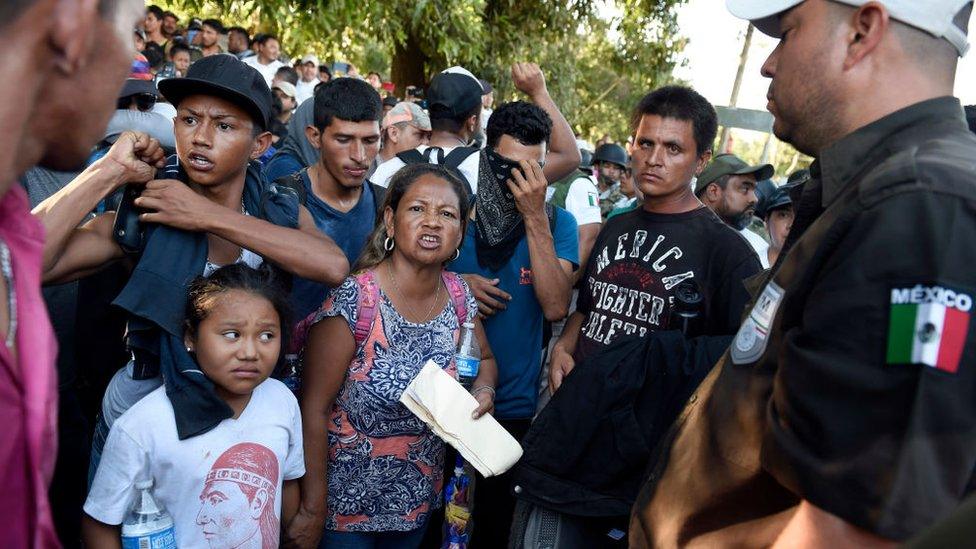
- Published14 July 2019
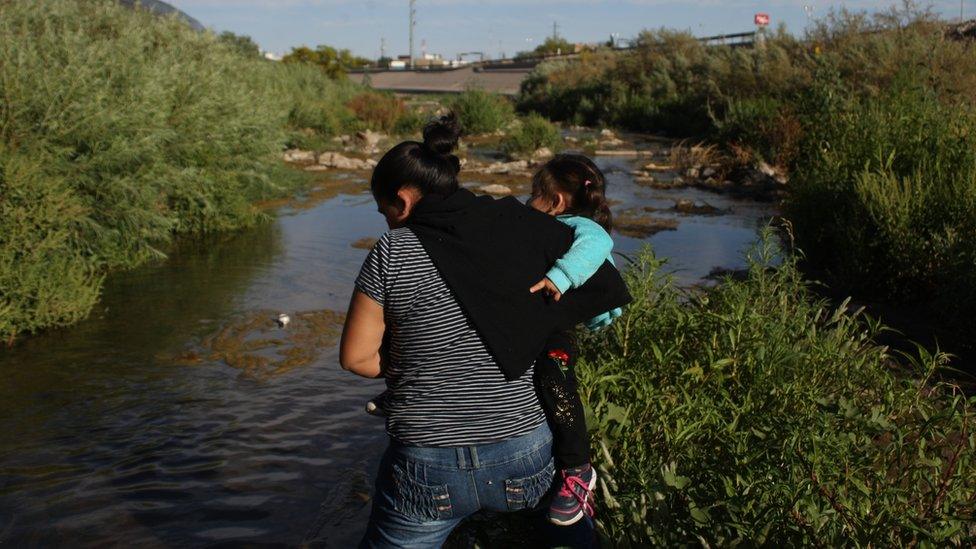
- Published31 October 2020
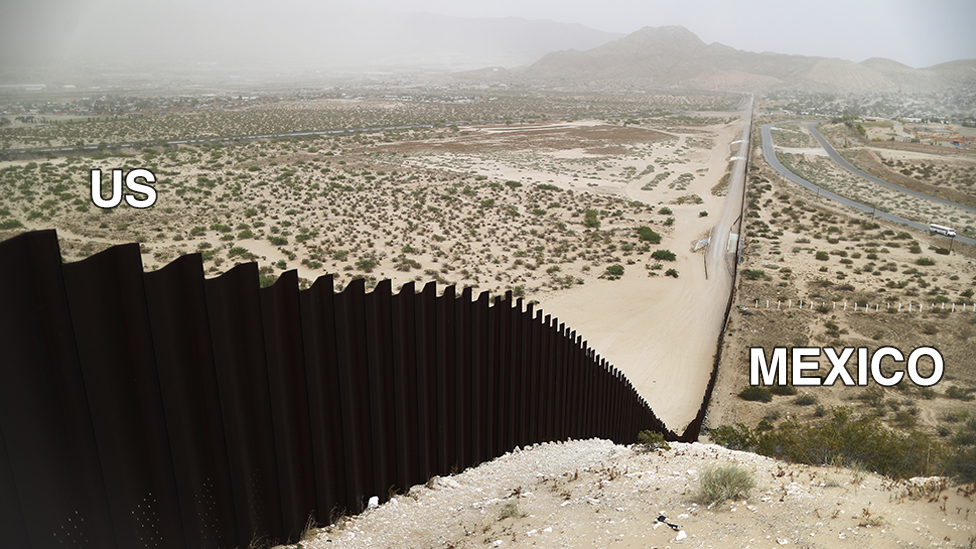
- Published15 January 2019
